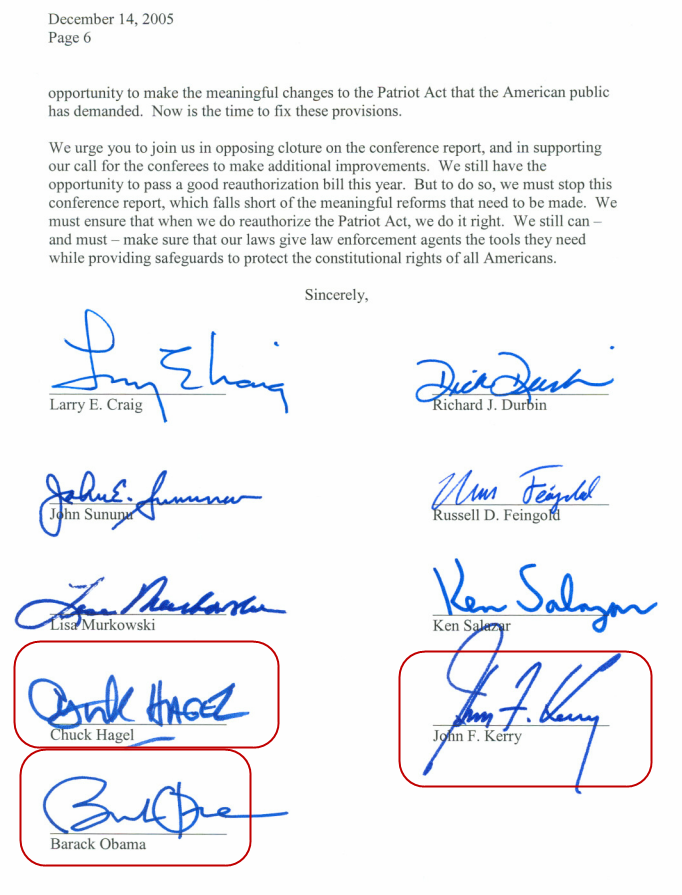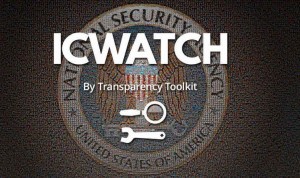
[buzzsprout episode no longer available]
________________________
Additional Information:
Congress’s ObamaCare Exemption (Wall Street Journal)
To adapt H.L. Mencken, nobody ever went broke underestimating the cynicism and self-dealing of the American political class. Witness their ad-libbed decision, at the 11th hour and on the basis of no legal authority, to create a special exemption for themselves from the ObamaCare health coverage that everybody else is mandated to buy.
The Affordable Care Act requires Members of Congress and their staffs to participate in its insurance exchanges, in order to gain first-hand experience with what they’re about to impose on their constituents. Harry Truman enrolled as the first Medicare beneficiary in 1965, and why shouldn’t the Members live under the same laws they pass for the rest of the country? . . .
. . . .But the statute means that about 11,000 Members and Congressional staff will lose the generous coverage they now have as part of the Federal Employees Health Benefits Program (FEHBP). Instead they will get the lower-quality, low-choice “Medicaid Plus” of the exchanges.
The Members—annual salary: $174,000—and their better paid aides also wouldn’t qualify for ObamaCare subsidies. That means they could be exposed to thousands of dollars a year in out-of-pocket insurance costs.
The result was a full wig out on Capitol Hill, with Members of both parties fretting about “brain drain” as staff face higher health-care costs. Democrats in particular begged the White House for help, claiming the Reid language was merely an unintentional mistake. President Obama told Democrats in a closed-door meeting last week that he would personally moonlight as HR manager and resolve the issue. . . .(read the rest)
U.S. Congress wins relief on Obamacare health plan subsidies (Reuters)
Congress has won some partial relief for lawmakers and their staffs from the “Obamacare” health reforms that it passed and subjected itself to three years ago.
In a ruling issued on Wednesday, U.S. lawmakers and their staffs will continue to receive a federal contribution toward the health insurance that they must purchase through soon-to-open exchanges created by President Barack Obama’s signature healthcare law.
The decision by the Office of Personnel Management, with Obama’s blessing, will prevent the largely unintended loss of healthcare benefits for 535 members of the Senate and House of Representatives and thousands of Capitol Hill staff.
When Congress passed the health reform law known as Obamacare in 2010, an amendment required that lawmakers and their staff members purchase health insurance through the online exchanges that the law created. They would lose generous coverage under the Federal Employees Health Benefits Program.
The amendment’s author, Republican Senator Charles Grassley, argued that if Obamacare plans were good enough for the American public, they were good enough for Congress. Democrats, eager to pass the reforms, went along with it.
But it soon became apparent the provision contained no language that allowed federal contributions toward their health plans that cover about 75 percent of the premium costs.
This caused fears that staff would suddenly face sharply higher healthcare costs and leave federal service, causing a “brain drain” on Capitol Hill.
But Wednesday’s proposed rule from the OPM, the federal government’s human resources agency, means that Congress will escape the most onerous impact of law as it was written. . . . .(read all)
Know Thine Enemy (Mark Steyn)
On December 7, 1941, the U.S. naval base at Pearl Harbor was attacked. Three years, eight months, and eight days later, the Japanese surrendered.
These days, America’s military moves at a more leisurely pace. On November 5, 2009, another U.S. base, Fort Hood, was attacked — by one man standing on a table, screaming “Allahu akbar!” and opening fire. Three years, nine months, and one day later, his court-martial finally got under way.
The intervening third-of-a-decade-and-more has apparently been taken up by such vital legal questions as the fullness of beard Major Hasan is permitted to sport in court. This is not a joke: See “Judge Ousted in Fort Hood Shooting Case amid Beard Debacle” (CBS News). Army regulations require soldiers to be clean-shaven.
The judge, Colonel Gregory Gross, ruled Hasan’s beard in contempt, fined him $1,000, and said he would be forcibly shaved if he showed up that hirsute next time.
At which point Hasan went to the U.S. Court of Appeals for the Armed Forces, which ruled that Colonel Gross’s pogonophobia raised questions about his impartiality, and removed him. He’s the first judge in the history of American jurisprudence to be kicked off a trial because of a “beard debacle.”
The new judge, Colonel Tara Osborn, agreed that Hasan’s beard was a violation of regulations, but “said she won’t hold it against him.”
The U.S. Army seems disinclined to hold anything against him, especially the 13 corpses plus an unborn baby. Major Hasan fired his lawyers, presumably because they were trying to get him off — on the grounds that he’d had a Twinkie beforehand, or his beard don’t fit so you must acquit, or some such.
As a self-respecting jihadist, Major Hasan quite reasonably resented being portrayed as just another all-American loon gone postal. So he sacked his defense team, only to have the court appoint a standby defense team just in case there were any arcane precedents and obscure case law he needed clarification on. I know that’s the way your big-time F. Lee Bailey types would play it, but it doesn’t seem to be Major Hasan’s style.
On the very first day of the trial, he stood up and told the jury that “the evidence will clearly show that I am the shooter.”
Later, in one of his few courtroom interventions, he insisted that it be put on the record that “the alleged murder weapon” was, in fact, his. The trial then came to a halt when the standby defense team objected to the judge that Major Hasan’s defense strategy (yes, I did it; gimme a blindfold, cigarette, and tell the virgins here I come) would result in his conviction and execution.
Major Hasan is a Virginia-born army psychiatrist and a recipient of the Pentagon’s Global War on Terrorism Service Medal, which seems fair enough, since he certainly served in it, albeit for the other side. . . . . (read the rest)
Obama Seeks to Limit the Insider Threat (GovInfoSecurity)
President Obama has ordered National Intelligence Director James Clapper to establish a group to review the latest intelligence and communications technologies to assess the risk of unauthorized disclosure to national security and foreign policy.
The review group, which will report its findings to Clapper by Dec. 15, also would assess other policy considerations, such as the need to maintain public trust. A White House spokeswoman, Caitlin Hayden, says Clapper will announce soon the the individuals to be named to the group. . .
. . . “These technological advances have brought with them both great opportunities and significant risks for our intelligence community: opportunity in the form of enhanced technical capabilities that can more precisely and readily identify threats to our security, and risks in the form of insider and cyber-threats,” Obama said in the memorandum. “I believe it is important to take stock of how these technological advances alter the environment in which we conduct our intelligence mission.” . . .
Presidential Memorandum — Reviewing Our Global Signals Intelligence Collection and Communications Technologies (White House)
FLASHBACK From October 2011:
Obama Establishes Insider Threat Task Force
President Obama issued an executive order Friday that establishes an Insider Threat Task Force to prevent potentially damaging and embarrassing exposure of government secrets, such those made public by WikiLeaks. . . .
Medical College of Wisconsin research assistant to get no additional jail time (CBS 58 News)
42-year-old Hua Jun Zhao has been found guilty of economic espionage after trying to steal medical research from the Medical College of Wisconsin, and bring it to Zhejiang University Medical School in China.
A federal judge has sentenced Zhao to time served, meaning Zhao won’t get any additional jail time outside of the time he already served.
The Federal Bureau of Investigations (F.B.I.) was contacted by Medical College of Wisconsin security after Dr. Marshall Anderson reported three bottles of a medical compound called C-25 missing. Dr. Anderson and his assistant researcher Zhao were conducting pharmacology experiments, specifically in the cancer research field.
Medical college security officers reviewed surveillance video, and saw Zhao enter Dr. Anderson’s office. He entered and left the office during the time the experimental medicine initially disappeared.
Zhao had previously been reprimanded for storing lab data on his personal computer. He was ordered to remove all data from his personal computer and place it on a work computer. The criminal complaint says Zhao knew not to put lab data on his personal computer.
Medical College of Wisconsin investigators found a posting by Zhao on a social media website called Researchgate. It’s a LinkedIn for scientists and researchers. On this website Zhao allegedly said he discovered a cancer fighting compound and wanted to bring it to China. Dr. Anderson told investigators Zhao was referencing his parented C-25 compound.
Medical College of Wisconsin security officers questioned Zhao on February 27th, but he claimed to have difficulty understanding the questioning. . . . . (read the rest)
Researcher in Medical College theft case is sentenced (Milwaukee-Wisconsin Journal Sentinel)
A Chinese scientist charged with stealing cancer research while working at the Medical College of Wisconsin was sentenced Tuesday to time served and turned over to immigration authorities.
His attorney, Michelle Jacobs, argued that continued incarceration would only harm, not protect, the public because it would keep Hua Jun Zhao from continuing his important research.
Zhao, 41, was arrested in March and charged in federal court with stealing data and a cancer research compound with the intent to benefit a Chinese university. The offense was economic espionage.
In a plea agreement, Zhao pleaded guilty last month to a far lesser charge: intentionally accessing a computer without authorization and obtaining information worth more than $5,000.
Zhao faced six months to a year in prison for the unauthorized access charge. He has been held since his arrest, about 41/2 months.
Judge Charles N. Clevert adopted the time-served sentence after finding no evidence that Zhao had intended to defraud or cause any loss to Medical College of Wisconsin, or even to make money for himself. . . (read more)
US National Debt nearing $17 TRILLION mark — http://www.usdebtclock.org/
California economist says real US debt $70 trillion (Fox News)
The federal government has been low-balling the public for years on how much debt it actually has, a University of California, San Diego economics professor says, adding that the real amount is $70 trillion – not $16.9 trillion.
James Hamilton’s claim the United States is in a much deeper financial hole than many realize comes as Congress gets ready for another budget battle when lawmakers return in September. Both sides have been digging in on their policy positions over the debt, spending and the country’s future fiscal health.
Hamilton believes the government is miscalculating what it owes by leaving out certain unfunded liabilities that include government loan guarantees, deposit insurance, and actions taken by the Federal Reserve as well as the cost of other government trust funds. Factoring in those figures brings the total amount the government owes to a staggering $70 trillion, he says.
Hamilton believes important areas of federal off-balance-sheet commitments include loans for post-high school education, the Federal Deposit Insurance Corporation and the Federal Reserve System. . . . (read more)
“Power tends to corrupt and absolute power corrupts absolutely.” — Sir John Dalberg-Acton
The Surveillance Reforms Obama Supported Before He Was President (ProPublica)
When the House of Representatives recently considered an amendment that would have dismantled the NSA’s bulk phone records collection program, the White House swiftly condemned the measure. But only five years ago, Sen. Barack Obama, D-Ill. was part of a group of legislators that supported substantial changes to NSA surveillance programs. Here are some of the proposals the president co-sponsored as a senator.
DICE NOTE: We’ll pull out the main points for you:
As a senator, Obama wanted to limit bulk records collection.
As a senator, Obama wanted to require government analysts to get court approval before accessing incidentally collected American data.
As a senator, Obama wanted the executive branch to report to Congress how many American communications had been swept up during surveillance.
As a senator, Obama wanted to restrict the use of gag orders related to surveillance court orders.
As a senator, Obama wanted to give the accused a chance to challenge government surveillance.
As a senator, Obama wanted the attorney general to submit a public report giving aggregate data about how many people had been targeted for searches.
As a senator, Obama wanted the government to declassify significant surveillance court opinions.
Sen. Obama warned about Patriot Act abuses. President Obama proved him right. (Washington Post)
In recent months, Barack Obama has forcefully defended the use of the Patriot Act to gather the phone records of every American. But before he was elected president, he had a very different perspective on the issue.
In December 2005, Congress was debating the first re-authorization of the Patriot Act, a controversial 2001 law that gave the federal government expanded power to spy on Americans. And Barack Obama was one of nine senators who signed a letter criticizing the then-current version of the legislation for providing insufficient protections for civil liberties.
The senators focused on Section 215 of the Patriot Act, which allows the government to obtain “business records” that are “relevant” to a terrorism investigation. Sen. Obama and eight of his colleagues worried that the provision would “allow government fishing expeditions targeting innocent Americans. We believe the government should be required to convince a judge that the records they are seeking have some connection to a suspected terrorist or spy.” . . . . (read rest)
New York Times editorial:
A Weak Agenda on Spying Reform
President Obama, who seems to think the American people simply need some reassurance that their privacy rights are intact, proposed a series of measures on Friday that only tinker around the edges of the nation’s abusive surveillance programs.
He said he wants “greater oversight, greater transparency, and constraints” on the mass collection of every American’s phone records by the National Security Agency. He didn’t specify what those constraints and oversight measures would be, only that he would work with Congress to develop them. But, in the meantime, the collection of records will continue as it has for years, gathering far more information than is necessary to fight terrorism.
He said he wants an adversary to challenge the government’s positions at the secret Foreign Intelligence Surveillance Court, a long-needed reform that would allow the court’s federal judges to hear more than one point of view in approving targets and security policy. But if those arguments remain closed to the public — and the president did not suggest otherwise — then it will be impossible to evaluate whether the change has had any effect. At a minimum, he could have urged the court to release unclassified summaries of its opinions when possible.
Finally, he announced that the N.S.A. would hire a civil liberties and privacy officer and create a Web site about its mission, and that a task force would review the nation’s surveillance technologies. These measures, however, are unlikely to have a real effect on intelligence gathering.
Fundamentally, Mr. Obama does not seem to understand that the nation needs to hear more than soothing words about the government’s spying enterprise. He suggested that if ordinary people trusted the government not to abuse their privacy, they wouldn’t mind the vast collection of phone and e-mail data.
Bizarrely, he compared the need for transparency to showing his wife that he had done the dishes, rather than just telling her he had done so. Out-of-control surveillance is a bit more serious than kitchen chores. It is the existence of these programs that is the problem, not whether they are modestly transparent. As long as the N.S.A. believes it has the right to collect records of every phone call — and the administration released a white paper Friday that explained, unconvincingly, why it is perfectly legal — then none of the promises to stay within the law will mean a thing.
If all Mr. Obama is inclined to do is tweak these programs, then Congress will have to step in to curb these abuses, a path many lawmakers of both parties are already pursuing. There are bills pending that would stop the bulk collection of communications data, restricting it to those under suspicion of terrorism. Other measures would require the surveillance court to make public far more of its work. If the president is truly concerned about public anxiety, he can vocally support legislation to make meaningful changes, rather than urging people to trust him that the dishes are clean.
DICE NOTE: Read the comments under “Reader Picks” tab at the end of this editorial













You must be logged in to post a comment.